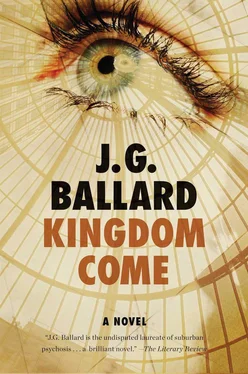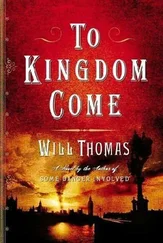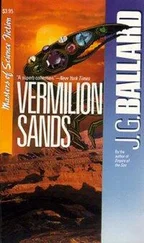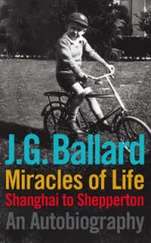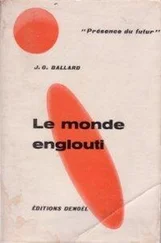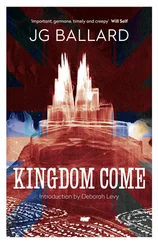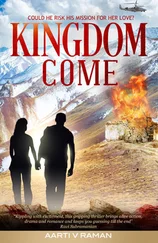He saw me kneeling by the rear wheel of the pick-up and came straight towards me. He gripped my shoulders, like a well-muscled orderly with a mental patient, and laughed good-humouredly when I tried to wrench his hands away. He lifted me to my feet, and propelled me towards his car.
‘Richard Pearson? We ought to leave before you beat anyone up. I think the Christies can look after themselves . . .’
14
TOWARDS A WILLED MADNESS
THE THIRD WITNESS.
Biding my time, I crouched in the bucket seat of the frisky Mazda as Dr Maxted steered us erratically through the streets of east Brooklands. We passed a young offenders’ prison, then veered through a business park where the research laboratories of Siemens, Motorola and Astra Computers tried to outstare each other across untrodden lawns and beds of subdued daffodils that had given up waiting for their Wordsworth. Emerging into a street of glass and metal warehousing, we joined a dual carriageway that led past a marina and water-skiing club built beside a reclaimed gravel lake.
I assumed that Maxted was trying to confuse me, constructing a maze around my head from a jumbled atlas of back streets and slip roads. When we passed the young offenders’ prison for the second time I tapped Maxted’s shoulder, but he pointed to the road ahead, as if the car needed my full attention.
I decided to humour him, and studied the heavy muscles of his neck, and the close-cropped hair over his broad skull. He drove the powerful car with a surprising lack of grace, his fingers barely touching the wheel, bruising the gearbox as he stamped the clutch pedal with a heavy foot. Like many psychiatrists, he needed to play games with anyone who entered his professional space, performing the private rituals of the modern-day shaman.
At last we approached Northfield Hospital, the mental asylum where Duncan Christie had been held. We paused by the gate, and Maxted punched the horn to rouse the security guard dozing over his evening paper. We moved past a gym and sports centre, blocks of staff apartments and an inter-denominational chapel that resembled an avant-garde pissoir. We parked outside the main admin building, and walked to a side entrance behind a screen of rhododendrons. Using his swipe card, Maxted led us into a coffin-like lift.
As we climbed towards the roof he looked me up and down, nodding without comment.
‘Thanks for the mystery tour,’ I said. ‘Quite a car, especially the way you drive it.’
‘Is that a compliment?’ Maxted loosened his tie. ‘I wasn’t trying to confuse you. Driving straight here would have done that. I’m impressed you ever found your way to Brooklands in the first place.’
‘I’m not sure I did . . .’
We stepped from the lift into a windowless lobby. After dialling an entry code, Maxted beckoned me into the hallway of an airy penthouse, apparently built as an afterthought from sections of glass and aluminium panelling. Deep balconies looked out over the hospital buildings below. A mile away, across a terrain of dual carriageways and industrial estates, rose the dome of the Metro-Centre, its blimp lazing above it like a tethered soul.
Maxted gestured at the expensive but anonymous furniture, the black leather sofas and chromium lamps lighting remote areas of carpet that no one had ever visited. It reminded me of the mezzanine television studio where David Cruise held court. In a sense the cable presenter and the psychiatrist were in the same business, redefining the world as a minimalist structure in which human beings were an untidy intrusion. Fittingly, the bookshelves were empty, and in the deserted dining room the table was set for guests who would never arrive.
‘It’s a kind of glamorous shack . . .’ Maxted gestured at the low-ceilinged rooms with a dismissive wave, but he seemed relaxed and confident, springing on his feet as if the penthouse reflected his secret view of himself. ‘The new research wing was financed by DuPont. I helped to raise a lot of the cash. This is one of the perks, like having your own lift. It takes away the pain.’
‘Is there any pain?’
‘Believe me. Still, you’re used to this kind of thing. A big London agency, seven-figure salary, share options, duplexes . . . Am I right?’
‘Wrong. As it happens, I’ve just been sacked.’ There had been a hint of longing in Maxted’s voice, untouched by envy, as if he was happy to live vicariously the elegant life that the penthouse only hinted at. I pointed to the Metro-Centre, unsure why he had brought me to the hospital. ‘It doesn’t look quite so large from here. The best view in Brooklands.’
‘Even though I’m living above a madhouse?’ Maxted laughed generously, walked to the drinks cabinet and came back with a decanter and two tumblers. ‘Laphroaig—private patients only.’
‘Am I a patient?’
‘I haven’t decided yet.’ Maxted steered me into the armchair facing him. His eyes ran over me, lingering on my scuffed but expensive shoes, though I decided not to tell him that I would never be able to afford another pair. He sipped noisily at the whisky, relying on his rough-edged charm to win me over. He was physically strong but insecure, glad to find shelter in the tumbler of malt. I assumed that he knew everything about me, and that Geoffrey Fairfax had told him about my enquiries.
‘So . . .’ Maxted put down his tumbler. ‘Tell me, do you like violence?’
‘Violence? What man doesn’t?’ I decided to let the whisky speak for me. ‘Yes, probably. When I was younger.’
‘Good. Sounds like an honest answer. Rugger brawls, nightclub aggro—that sort of thing?’
‘That sort of thing.’
‘Did you box at school?’
‘Until they banned it. We formed a martial arts society to get around the ban. We called it self-defence.’
‘Kick and grunt? Slapping mattresses?’ Maxted smiled nostalgically. ‘What’s the appeal?’
‘In a word?’ I looked away from his slightly prurient eyes. ‘Danger.’
‘Go on.’
‘Fear, pain, anything to break the rules. Most people never realize how violent they really are. Or how brave, when your back’s against the wall.’
‘Exactly.’ Maxted sat forward, fists clenched, Laphroaig forgotten. ‘That’s when you rally yourself, even when someone’s beating the blood out of your brains.’
‘Don’t tell me you box?’
‘A long time ago. Half-blue. But I remember how it feels. After three rounds you’re alive again.’ Maxted pulled the stopper from the decanter. ‘That’s the trouble with the video conference. Primal aggression tamped down, no straight lefts, no uppercuts to the chin. We’re a primate species with an unbelievable need for violence. White-water rafting doesn’t quite fit the bill. There must be something else.’
‘There is. You know that, Dr Maxted.’
‘I’d like to hear it from you.’
I stared hard at the dome, trying to guess at the mindset of this maverick psychiatrist, almost as odd as any of his patients. The afternoon had begun to fade, and the interior lights turned the Metro-Centre into an illuminated pumpkin. I said: ‘Danger, yes. Pain, the fear of death. And outright insanity.’
‘Insanity . . . of course.’ Savouring the word, Maxted lay back in the sofa, resting his thick neck against the black leather. ‘That’s the real appeal, isn’t it? The freedom deliberately to lose control.’
‘Doctor, can we . . . ?’
‘Right.’ Having drawn the answer he wanted from me, Maxted clapped his hands. He pushed the decanter away, clearing the table between us. ‘Let’s get down to business. I brought you here, Richard, because there are things we ought to talk over. You’ve been in Brooklands a few weeks, and frankly you’re cutting it a little fine. Every street brawl, every supporters’ punch-up, that daft business this afternoon with the Christies . . . you’re a magnet tuned to violence.’
Читать дальше
Конец ознакомительного отрывка
Купить книгу
